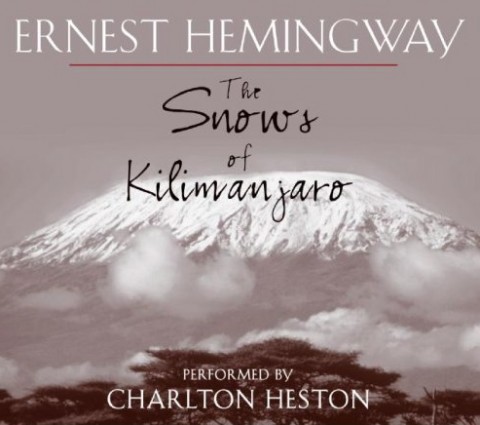Today is “Bloomsday,” the traditional day for book lovers to celebrate James Joyce’s masterpiece, Ulysses (text — audio). To mark the occasion we bring you this rare 1924 recording of Joyce reading from the Aeolus episode of the novel. The recording was arranged and financed by the author’s friend and publisher Sylvia Beach, who brought him by taxi to the HMV (His Master’s Voice) gramophone studio in the Paris suburb of Billancourt. The first session didn’t go well. Joyce was nervous and suffering from his recurring eye troubles. He and Beach returned another day to finish the recording. In her memoir, Shakespeare & Company, Beach writes:
Joyce had chosen the speech in the Aeolus episode, the only passage that could be lifted out of Ulysses, he said, and the only one that was “declamatory” and therefore suitable for recital. He had made up his mind, he told me, that this would be his only reading from Ulysses.
I have an idea that it was not for declamatory reasons alone that he chose this passage from Aeolus. I believe that it expressed something he wanted said and preserved in his own voice. As it rings out–“he lifted his voice above it boldly”–it is more, one feels, than mere oratory.
The passage parallels the episode in Homer’s Odyssey featuring Aeolus, god of the winds. As a pun, Joyce sets it in a newspaper office where his hero Leopold Bloom stops by to place an ad, only to be stymied by the blustery noise of the printing presses and of the various “windbags” in the office.
One character tries to entertain a couple of his friends with a mocking recital of a politician’s speech printed in the day’s newspaper. Here is the passage Joyce reads:
He began:
–Mr. Chairman, ladies and gentlemen: Great was my admiration in listening to the remarks addressed to the youth of Ireland a moment since by my learned friend. It seemed to me that I had been transported into a country far away from this country, into an age remote from this age, that I stood in ancient Egypt and that I was listening to the speech of a highpriest of that land addressed to the youthful Moses.
His listeners held their cigarettes poised to hear, their smoke ascending in frail stalks that flowered with his speech…Noble words coming. Look out. Could you try your hand at it yourself?
–And it seemed to me that I heard the voice of that Egyptian highpriest raised in a tone of like haughiness and like pride. I heard his words and their meaning was revealed to me.
From the Fathers
It was revealed to me that those things are good which yet are corrupted which neither if they were supremely good nor unless they were good could be corrupted. Ah, curse you! That’s saint Augustine.
–Why will you jews not accept our language, our religion and our culture? You are a tribe of nomad herdsmen; we are a mighty people. You have no cities nor no wealth: our cities are hives of humanity and our galleys, trireme and quadrireme, laden with all manner merchandise furrow the waters of the known globe. You have but emerged from primitive conditions: we have a literature, a priesthood, an agelong history and a polity.
Nile.
Child, man, effigy.
By the Nilebank the babemaries kneel, cradle of bulrushes: a man supple in combat: stonehorned, stonebearded, heart of stone.
–You pray to a local and obscure idol: our temples, majestic and mysterious, are the abodes of Isis and Osiris, of Horus and Ammon Ra. Yours serfdom, awe and humbleness: ours thunder and the seas. Israel is weak and few are her children: Egypt is an host and terrible are her arms. Vagrants and daylabourers are you called: the world trembles at our name.
A dumb belch of hunger cleft his speech. he lifted his voice above it boldly:
–But, ladies and gentlemen, had the youthful Moses listened to and accepted that view of life, had he bowed his head and bowed his will and bowed his spirit before that arrogant admonition he would never have led the chosen people out of their house of bondage nor followed the pillar of the cloud by day. He would never have spoken with the Eteral amid lightnings on Sinai’s mountaintop nor even have come down with the light of inspiration shining in his countenance and bearing in his arms the tables of the law, graven in the language of the outlaw.
For more of Ulysses, click here to find out how you can download it as a free audio book. And to hear a clearer recording of Joyce’s voice made five years after this one, see our 2012 post: “James Joyce Reads ‘Anna Livia Plurabelle’ from Finnegans Wake.”
Related Content:
Henri Matisse Illustrates 1935 Edition of James Joyce’s Ulysses
Stephen Fry Explains His Love for James Joyce’s Ulysses
Marilyn Monroe Reads Joyce’s Ulysses at the Playground (1955)


